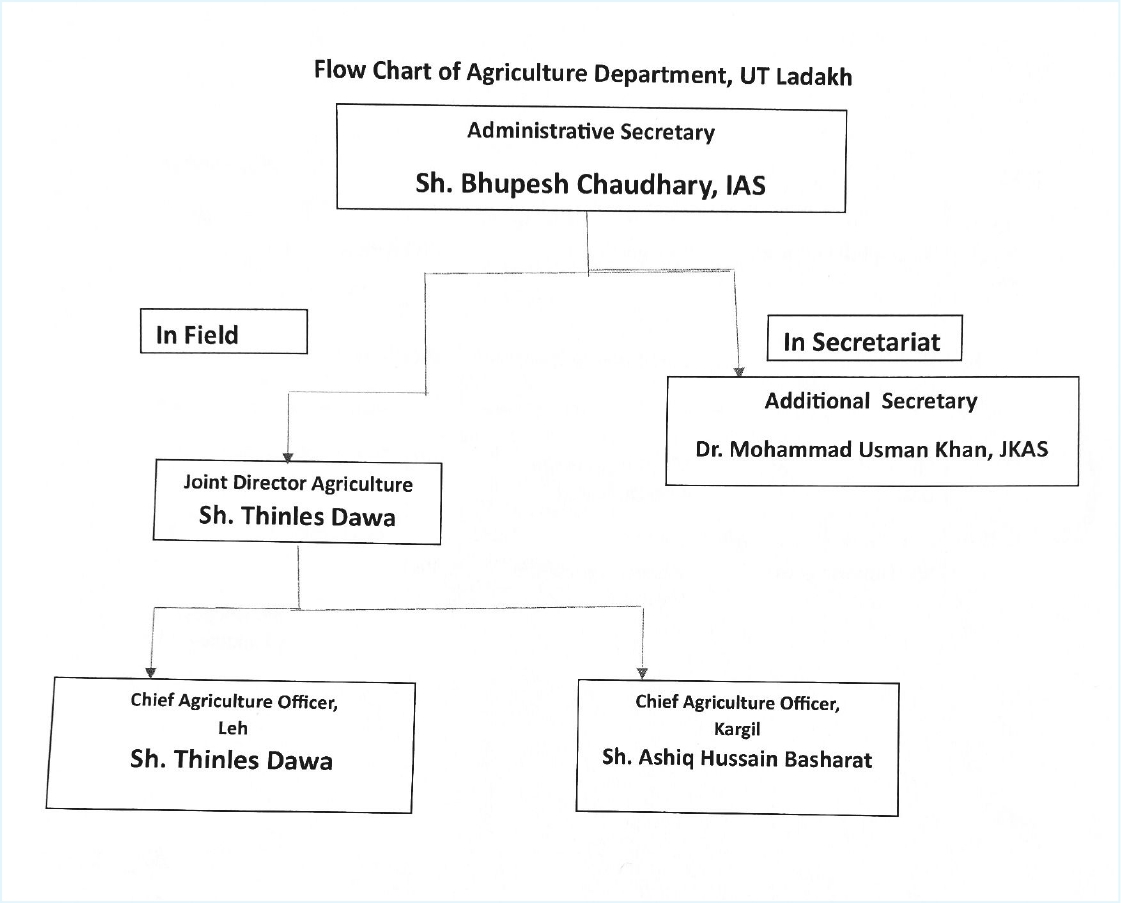Department of Agriculture – UT Ladakh
Introduction
The Department of Agriculture is one of the oldest departments in the region. Since its establishment, the department has served the farming community by disseminating scientific technologies to increase crop production, seed distribution, supply of agri-machineries, off-season vegetable cultivation, and introduction of new vegetable varieties. These efforts have improved the living standards of the people and boosted the farmers’ economy over time.
Vision
To transform agriculture in Ladakh into a sustainable, remunerative, attractive, and dignified occupation by blending traditional practices with advanced systems. This will be achieved while respecting scarce natural resources and conserving the fragile environment.
In a nutshell: “Sustainable Agriculture for enough food, employment and wealth” is the vision of the Agriculture Department of UT Ladakh. Increasing production & productivity and return on investment in agriculture for the welfare of the farmers is the key goal.
Objectives
- Making the farmers aware of the latest inputs and innovations in agriculture and guiding them through the entire cultivation cycle to grow crops for both personal and commercial use.
- Implementing on-ground all the Centrally Sponsored Schemes in the realm of Agriculture.
- Providing HYV seeds/ Hybrids and quality planting material.
- Promotion of Soil Health through Integrated Nutrient Management and use of Soil Health Cards.
- Promoting Diversification in Cropping /Farming Systems and Organic Farming.
- Special focus on creation of irrigation infrastructure (Per Drop More Crop & Har Khet Ko Pani).
- Promotion of Post Harvest Management Practices, Integrated Pest Management and Prevention of Post Harvest Losses.
- Creation of post-harvest infrastructure in Agriculture such as Warehousing, Cold Chains, Reefer Vans & Mandis.
- Promotion of Farm Mechanization with special focus on Hill Agriculture.
- Promotion of Ancillary activities such as Mushroom, Forestry, Vermi-composting, etc.
- Promotion of Value Addition, Branding, Tagging, and Micro Food Enterprises.
- Promotion of off-season vegetables by way of Protected Cultivation (Greenhouses, etc.).



